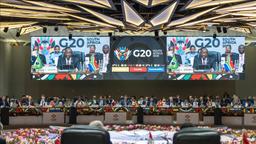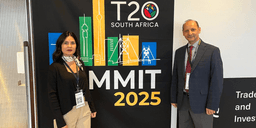
The results of the recent G7 Summit reveals that advanced economies prioritise a coordinated approach to economic security. It reflects their reunited position around the common purpose, mainly addressing China. Dr. Sait Akman, Director of TEPAV G20 Studies Center pointed out in the Panel that G7 is becoming more relevant as advanced economies seek for coordination on geopolitical, economic and security issues. He also emphasised that Türkiye’s role as a middle power and its involvement in global issues could face challenges.
At the G7 Summit in Hiroshima, G7 members highlighted economic resilience and economic security as the best protection against weaponisation of economic vulnerabilities. They agreed on a coordinated approach to economic security, stressing that the goal was to de-risk and not to decouple. Despite its emphasis on several global challenges, the G7 summit had a China-centric understanding of economic security. They also recognized that strengthening it requires cooperation with like-minded countries.
"Possible Outcomes for International Trade During the G7 and G20 Presidencies in 2023" meeting held on June 1, 2023, organised by German Council on Foreign Relations (DGAP) in collaboration with partnering institutions, including TEPAV, discussed what the G7 and G20 can achieve together to further enhance international trade cooperation from the şperspectives of Japan (G7 chair), India (G20 chair), Germany and Türkiye.
Dr. Sait Akman, Director of TEPAV’s G20 Studies Center argued that G7 was becoming more relevant in the present geopolitical climate, relating to the Russian war and the rising tensions between the United States and China, which impacted the functioning of the G20, despite the fact that the latter had played important role in advancing dialogue and policy-making on global governance issues.
Akman said that Türkiye, as a middle power, a member of G20, and MIKTA played an important role with bridging functions between East and West, Asia and Europe, emerging economies, and advanced economies. G20 portrayed as an indication of its increasing involvement in global governance. However, if de-risking leads to any decoupling between G7 and BRICS- China in particular- Turkey’s role could be unsettled. Türkiye needs to figure out whether it is still a like-minded country for the G7 countries. It needs to put in track its uneasy relations with the advanced democracies, redefine its trading framework (i.e. the Customs Union upgrading) with the EU, address its domestic political and economic problems.




